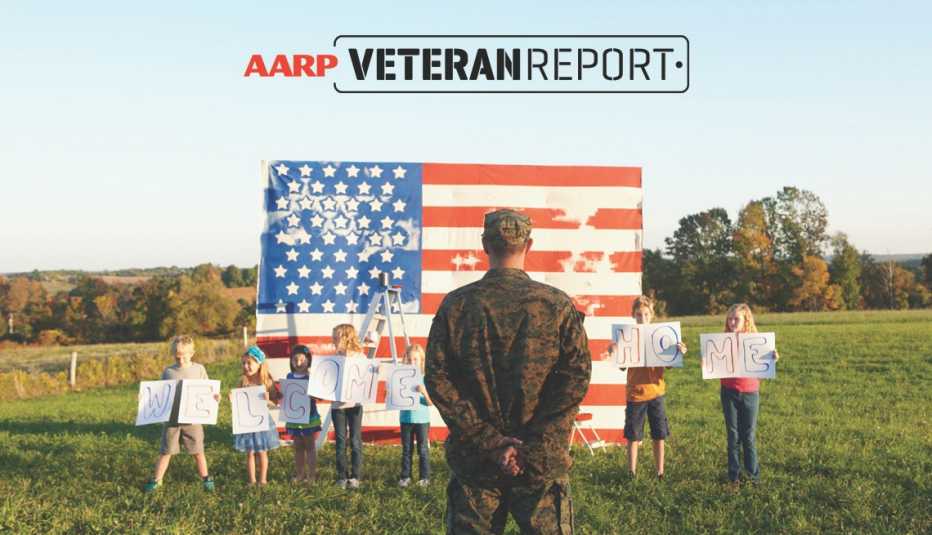AARP Hearing Center


You can subscribe here to AARP Veteran Report, a free e-newsletter published every two weeks. If you have feedback or a story idea then please contact us here.
Like so many veterans, the end of the Afghanistan war a year ago was devastating for me. As I watched Taliban fighters rolling into Kabul on U.S.-made vehicles, white flags of the Islamic Emirate of Afghanistan snapping in the wind, I thought, Twenty years of fighting and dying — for this?
Rather than succumb to despair and anger, however, I decided to do what my training and combat experience as a Green Beret had taught me — and what my patriotism as an American citizen demanded. I focused on the problem, gathered some allies, came up with a plan and worked to fix what I could.
Part of me was screaming: Don’t get involved. For a split second, I was transported back to that moment in 2015, when I was sitting on the floor of my bedroom closet, the door closed, room dark, a loaded .45 in my hand, tears in my eyes. Guilt gnawing my stomach lining. That was rock bottom. I had been ready. That was my time.
Only, it hadn’t been. I was happily married and had three sons. The only thing that stopped me that day was that one of my boys came home early. I had survived, and despite my trauma, I was now thriving. The last thing I wanted to do was to jump back into the morass I had pulled myself out of.
But jump in I did. I sent out an SOS call, and soon I was reconnecting with special operations veterans who had deployed to Afghanistan year after year, in three trips, or maybe 10, or even 15 times since 9/11. Men and women who forged bonds with Afghans they fought and worked alongside, shoulder to shoulder, to whom they made promises.
We became the shepherds, forming a group that came to be known as Operation Pineapple Express, dedicated to getting Afghans out before the Taliban could kill or oppress them. Volunteer groups have always been an integral part of any successful civil society, and in the U.S., veterans are always at the heart of citizen action.
What followed was a desperate last mission in Afghanistan as we struggled from thousands of miles away to save people while the clock ran out. Tragically, we had to contend with carnage as the terrorists detonated a device by Abbey Gate outside Kabul’s airport, killing over 200 hundred people, including 13 U.S. service members.
Our group was just one citizen liaison network among many, made up of can-do Americans — most of us veterans — who looked at a humanitarian catastrophe and stepped forward to show our country, and the world, what could be achieved in the darkest of times.
We were working with limited information, limited resources and limited access. We were volunteers with experience and relationships who were using cellphones to address an “Uncle Sam–size problem.” Yet the 125,000 people evacuated would not have all gotten out were it not for the volunteers involved in the effort to get people to that airport and a plane to freedom.






































































